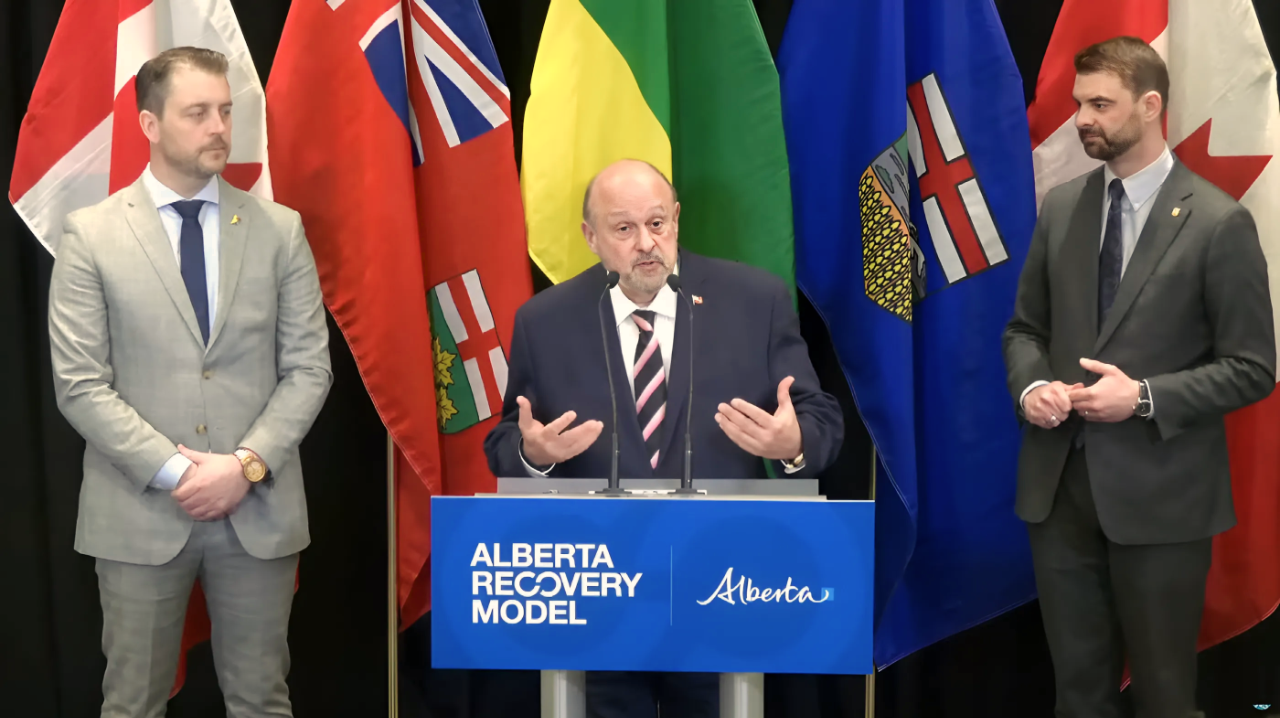In a significant move towards addressing the pressing challenges of mental health and addiction, Alberta’s Mental Health and Addiction Minister, Dan Williams, alongside provincial counterparts, convened in downtown Calgary to announce a landmark partnership focused on building a system of care with a primary emphasis on recovery. This pivotal announcement comes amidst the backdrop of Canada’s largest recovery capital conference, hosted in Calgary, where over 2,000 participants, including Canadians and international delegates, have gathered to deliberate and share insights on tackling addiction and promoting recovery within healthcare systems and communities.
Minister Williams highlighted the increased cooperation among Alberta, Saskatchewan, and Ontario, underscoring the shared commitment to addressing the addiction crisis and mental health challenges through a concerted effort towards the development of recovery-oriented systems of care. The announcement follows Alberta’s recent allocation of $1.13 billion towards mental health and addiction initiatives within the newly formed Health Organization of Recovery Alberta, signaling a substantial commitment towards evidence-based policy-making and evaluation through the Canadian Centre of Recovery Excellence.
Addressing the conference attendees, Minister Williams emphasized the critical importance of indigenous partnerships, acknowledging the significant role played by indigenous communities in shaping recovery initiatives. Alberta’s collaboration with indigenous partners has resulted in the establishment of five recovery treatment centers on reserves, reflecting a commitment to culturally sensitive and community-driven solutions.
Michael A. Tibollo, Associate Minister of Mental Health and Addictions for the Ontario Provincial Government, echoed the sentiments expressed by Minister Williams, highlighting Ontario’s commitment to building a recovery-oriented system within the province. With investments exceeding $525 million annually and an additional $90 billion allocated towards addiction treatment and recovery programs, Ontario aims to provide comprehensive support to individuals battling addiction, with a focus on reintegration into communities.
Similarly, Tim Mcleod, Minister of Mental Health and Addictions, Seniors and Rural and Remote Health for the Saskatchewan Provincial Government, underscored the province’s Action Plan for Mental Health and Addictions, which prioritizes expanding capacity, improving access, and transitioning towards a recovery-oriented system of care. The collaborative efforts between Alberta, Ontario, and Saskatchewan underscore a unified commitment towards fostering recovery and supporting individuals on their journey towards healing.
During the press conference, Minister Dan Williams responded to questions about the need for improvement in harm reduction services by emphasizing the government’s commitment to allocating resources for harm reduction measures, such as distributing naloxone kits. He clarified the government’s stance on harm reduction, distinguishing it from policies that could potentially increase harm, such as safe supply. Minister Williams highlighted ongoing efforts to reform and expand harm reduction measures based on evidence and best practices.
When asked about the collaboration between Alberta, Saskatchewan, and Ontario, Minister Williams emphasized the importance of sharing ideas, resources, and best practices to address mental health and addiction challenges collectively. He stressed the need for collaboration to develop more effective strategies for supporting individuals on their journey to recovery. Ministers Michael A. Tibollo and Tim McLeod echoed the sentiment, underscoring the significance of collaboration in tackling mental health and addiction issues that transcend provincial boundaries.
Minister Tim McLeod of Saskatchewan addressed questions regarding the recent increase in drug-related deaths and measures taken by the government to address this issue. He outlined a multi-pronged approach, including expanding addiction treatment facilities, improving access to services, and implementing initiatives like the take-home naloxone program and overdose outreach teams. Minister McLeod emphasized the government’s focus on providing comprehensive support and treatment to individuals struggling with addiction.
Regarding calls for safe consumption sites, Minister McLeod reiterated the government’s commitment to investing in programs and services aimed at addressing addiction’s underlying issues and supporting individuals on their path to recovery. Minister Williams responded to criticisms about focusing solely on recovery initiatives, explaining the government’s approach of investing in both recovery spaces and immediate access programs like the virtual opioid dependency program.
Minister Williams also elaborated on existing harm reduction measures in Alberta, highlighting the effectiveness of programs like naloxone distribution and virtual opioid dependency therapy in reducing harm and saving lives. He reaffirmed the government’s commitment to exploring additional harm reduction measures based on evidence and best practices. Minister Williams expressed his motivation to continue advocating for mental health and addiction initiatives, citing compassion and care for vulnerable individuals as driving factors.
Lastly, Minister Michael A. Tibollo of Ontario expressed support for unique chemical identifiers for safe supply, emphasizing their potential role in tracking and regulating the distribution of pharmaceutical-grade substances. He recognized the importance of such measures in ensuring the safe and regulated use of substances for medicinal purposes.
As stakeholders continue to work together, leveraging expertise, resources, and innovative solutions, there is renewed hope for individuals battling addiction to find support, healing, and a path towards recovery.

